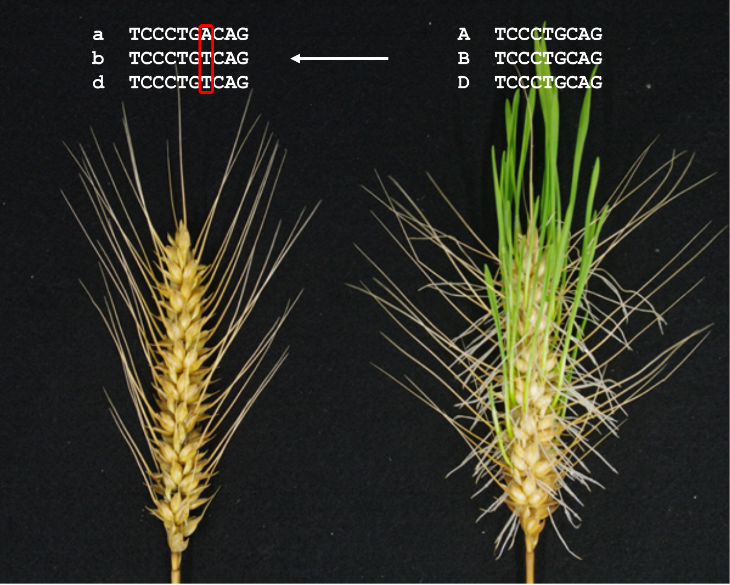Enlarge Image
Rapid wheat improvement by genome editing
Genome editing is a method of altering the DNA sequence of a target gene, which can rapidly improve traits not previously observed in crops. In addition, unlike previous genetically modified crops, there is no difference in the DNA sequence between genome-edited crops and conventionally developed crops.
However, bread wheat has three different sets of genomes and respective genes which have to be modified simultaneously to change its trait.
Now, Kazuhiro Sato at IPSR Okayama University and colleagues have shown that a new highly efficient genome editing method could knockout the function of three related wheat genes.
The researchers used an Agrobacterium-mediated transformation system to transfer CRISPR/Cas9 to wheat genome for genome editing. Acceleration of generation advancement resulted in a triple knockout plant within 14 months.
The responsible gene was initially found in barley by Sato and his colleagues. The triple knockout on the related genes significantly delay the germination of grains which was not observed before in wheat.
The technique is used to control the gene to prevent pre-harvest sprouting of grains on the spike (Figure) and may contribute to the stable production of wheat in many countries.
Reference:
- Authors: Fumitaka Abe, Kazuhiro Sato et al.
- Title of original paper: Genome-edited triple recessive mutation alters seed dormancy in wheat
- Journal, volume, pages and year: Cell Reports 94, 1362-1369.e4 (2019).
- Digital Object Identifier (DOI): https://doi.org/10.1016/j.celrep.2019.06.090
- Journal website: http://cellreports.cell.com
- Affiliations: Institute of Plant Science and Resources, Okayama University
- Department website: http://www.rib.okayama-u.ac.jp/
- Okayama University Scientific Achievement Repository:http://ousar.lib.okayama-u.ac.jp/ja/57452


